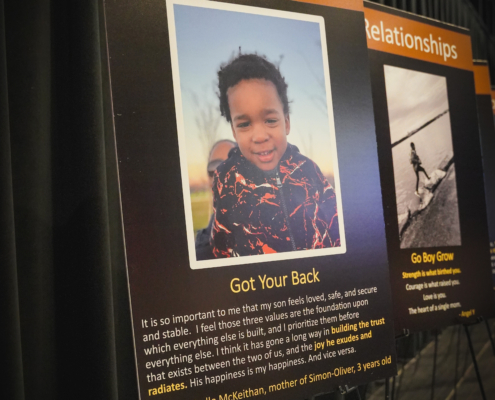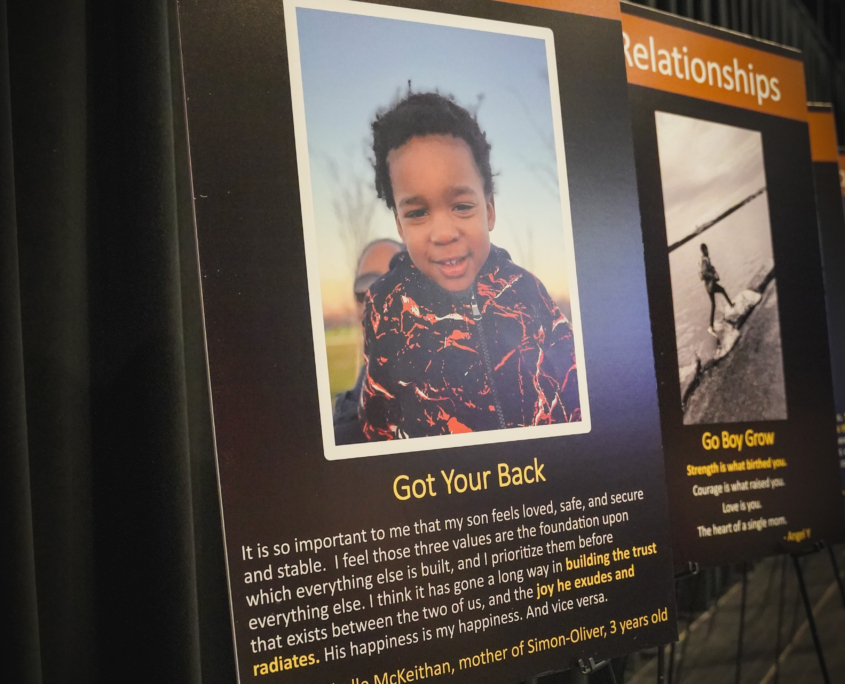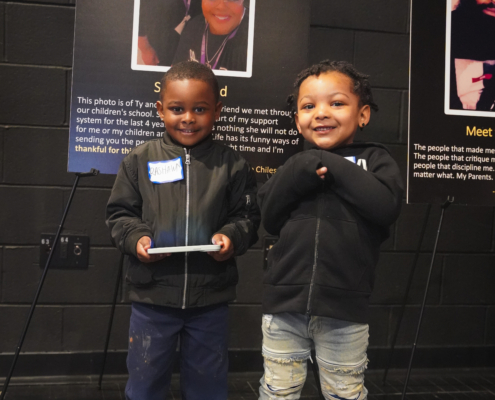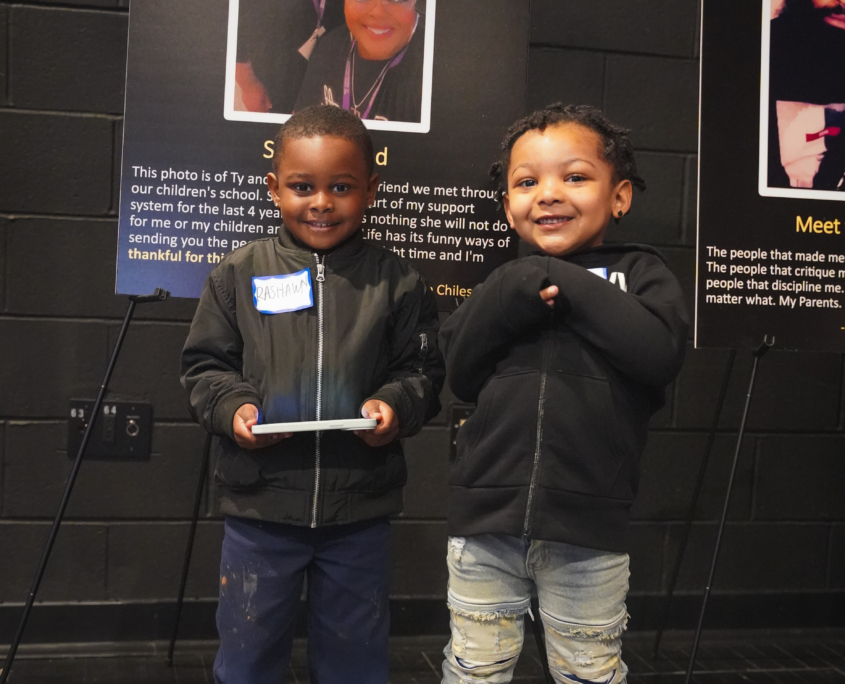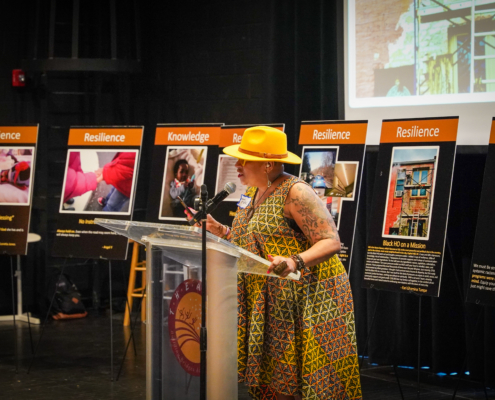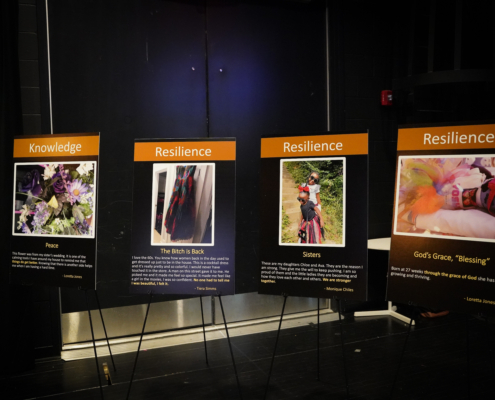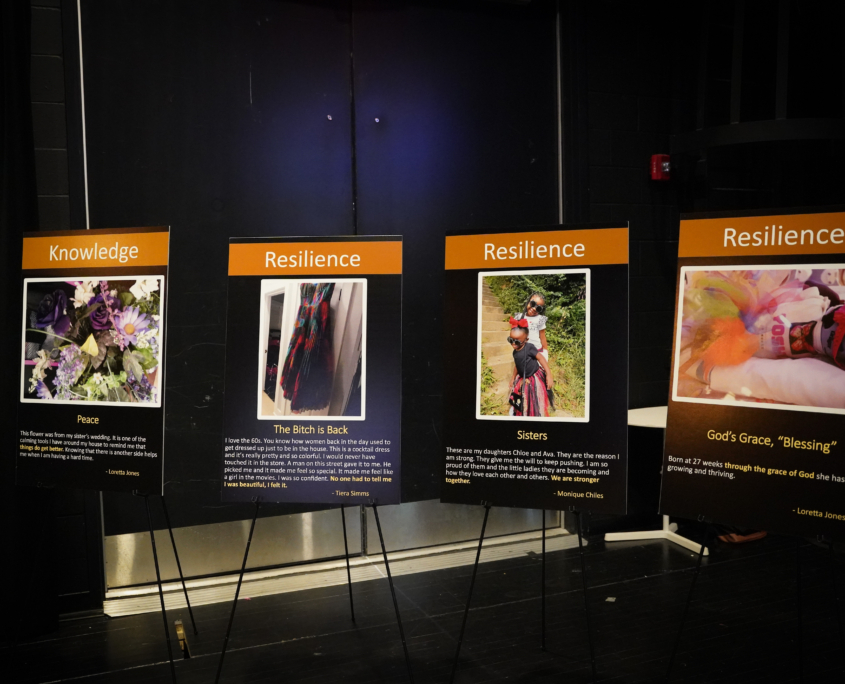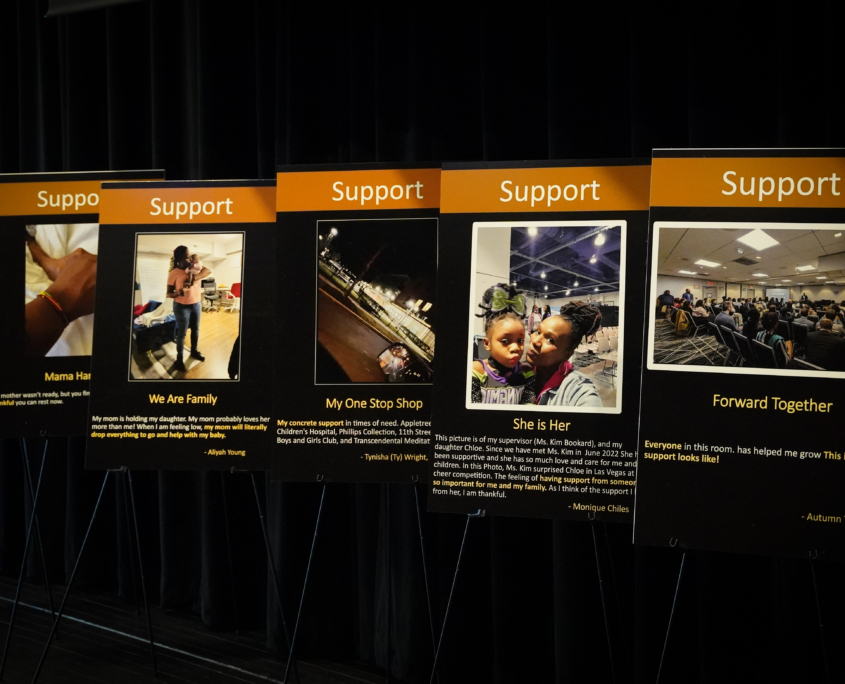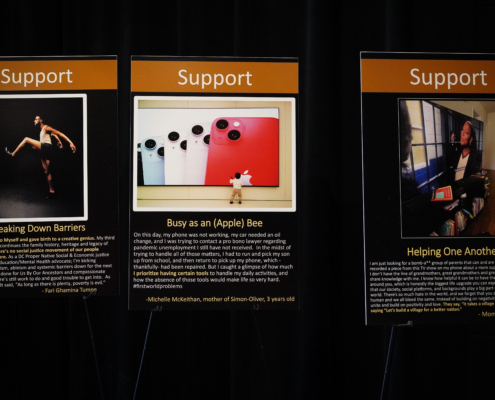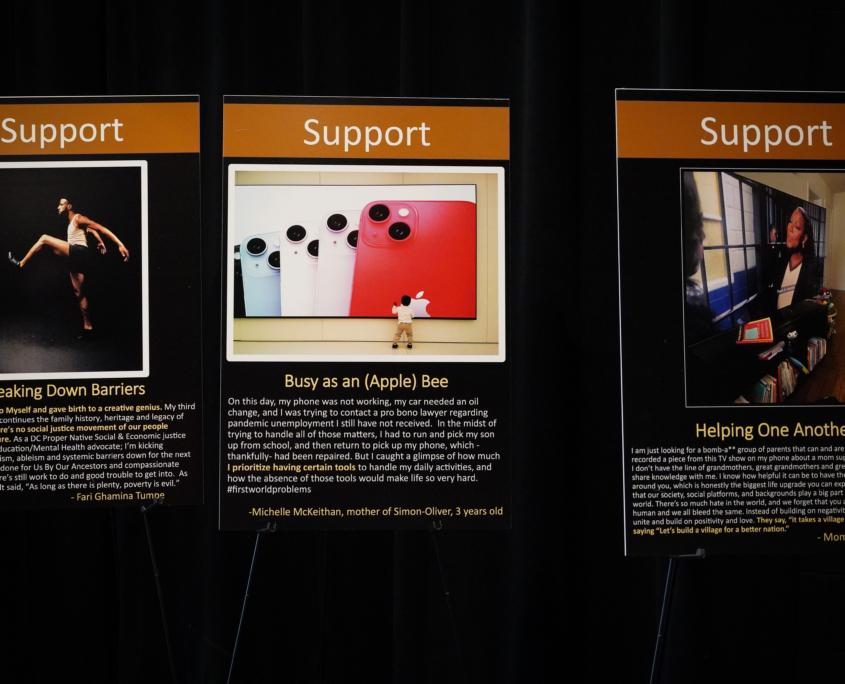On March 23rd, the Early Childhood Innovation Network (ECIN) hosted a photo exhibition at THEARC highlighting the work of parents and caregivers who are involved in Parent Cafés in the District of Columbia. As the CDC reports worsening mental health among adolescents (1) practitioners and researchers advise promoting wellness on a family level, as family engagement was found to be a protective factor for children.(2) Parent Cafés are “physically and emotionally safe spaces where parents and caregivers talk about the challenges and triumphs of raising a family”. (3)
Strengths-based, peer-led parenting programs are under-utilized and understudied. Parent Cafés are different from other parenting programs because they are based on lived experiences of parents and their peers as opposed to an “expert”. Parent Cafés also promote knowledge of the Strengthening Families™ Protective Factors (resilience, relationships, support, knowledge, and communication). (4) These protective factors were adopted from the Center for the Study of Social Policy’s Protective Factors Framework, which summarizes five of the most predictive protective factors against ACEs. (5)
In order to capture the experiences of parents and caregivers involved in Parent Cafés, we used a qualitative research method, Photovoice, where participants used photography, narration, and written captions to answer a research question. The research question was, how do you incorporate the protective factors into your life and what challenges get in the way? Parents and caregivers worked collaboratively across 5 sessions to curate an exhibition. View photos from the event!
After the exhibition, parents and caregivers were asked to join the research team and/or attend social action workshops. The caregivers have been working on ways to make resources for families more accessible. Stay tuned to hear more about this work!
For more information about Parent Cafés, please reach out to the Parent Café Team at ParentCafeTeam@childrensnational.org, a part of the Early Childhood Innovation Network (ECIN), which is a collaboration between Children’s National Health System and MedStar Georgetown University Hospital.
All photographs by Bilal Ahmed (instagram: @__bilal)
References
- Centers for Disease Control and Prevention. (2020). Youth risk behavior surveillance data summary & trends report: 2009-2019.
- Blackwell, C. K., Mansolf, M., Sherlock, P., Ganiban, J., Hofheimer, J. A., Barone, C. J., Bekelman, T. A., Blair, C., Cella, D., Collazo, S., Croen, L. A., Deoni, S., Elliott, A. J., Ferrara, A., Fry, R. C., Gershon, R., Herbstman, J. B., Karagas, M. R., LeWinn, K. Z., … Wright, R. J. (2022). Youth Well-being During the COVID-19 Pandemic. Pediatrics, 149(4), e2021054754. https://doi.org/10.1542/peds.2021-054754 .
- Be Strong Families. (n.d.). Mission & Values. Be Strong Families. Retrieved May 01, 2023, from https://www.bestrongfamilies.org/mission-and-values.
- Be Strong Families. (n.d.). 5 Protective Factors_BSF Letterhead.pdf. Google Docs. Retrieved from https://drive.google.com/file/d/1kamfEjJkCzphnmAN9RVFKrH2zi6QTF5R/view?usp=embed_facebook.
- Harper Browne, C. (2016). The strengthening families approach and protective factors framework™: A pathway to healthy development and well-being. Innovative approaches to supporting families of young children, 1-24.




